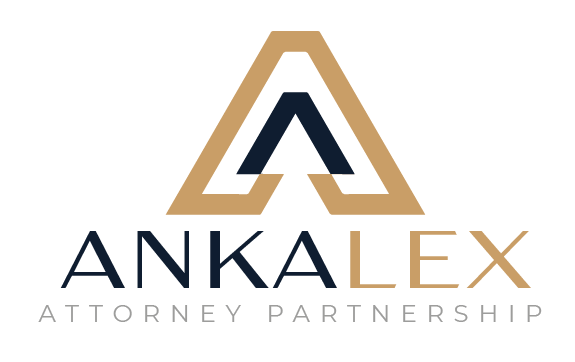-License and Tax Incentive –
What is business angel?
A business angel (also known as a private investor, seed investor or angel funder) is an individual who provides capital for a start-up / scale-up companies in exchange for convertible debt or ownership equity. Business angels (BA) can invest personally or as a member of a BA network.
There is merely a regulation regarding the angel investor under Turkish Law, “Regulation on Capital of Business Angels”. A business angel shall be a private individual, often with a high net-worth, and usually with finance and investing experience.
It is obvious that one of the vital problems for enterprises and start-Up/scale-up companies is finding financial resources. Even though these companies carry high fail-risks, BAs can provide capital for these companies to keep them alive. Naturally, private investors expect high return on profit from a high-risk investment. This financial ecosystem creates more funds, resources, and companies. It can be said that it turns out a self-feeding economic hub after a certain point. For that reason, many countries regulate tax privileges on the angel investor to attract more investors.
“Regulation on Capital of Business Angels” was published in the Official Gazette dated 15.02.2013 and numbered 28560. The regulation defines a BA as natural persons who transfer their personal assets, experience and/or knowledge to companies in their starting or scaling stages. According to the regulation, natural person operating as a BA should have the BA license to benefit from the tax incentive.
Who is eligible to become a BA in Turkey and what are the tax benefits for a BA?
According to Income Tax Law (Law No. 193, Official Gazette No. 10700 dated 06.01.1961), a taxpayer with a BA license is able to qualify for tax breaks. If investors do not sell their shares for at least two years, they have the right to use 75% of their share’s value as a tax relief. Furthermore, tax relief ratio is 100% for those BAs into the companies whose projects are supported by Ministry of Science within the scope of R&D incentives in the last 5 years.
In order to benefit from this tax incentives, BAs must apply to the administration and obtain an BA license before acquiring the shares of the company they will invest in.
The regulation allowed the following persons to apply for a BA license:
- high net worth persons or wealthy investors,
- experienced investors,
- c-level employees,
- a member of BA networks,
- a person who has experience in
BA licenses are valid for five years. These licenses are non-transferable. The tax relief related to the BA is limited to 1.000.000 Turkish lira. Investor participating with a BA license cannot be a direct or indirect controlling shareholder of the company in which the BA invested.
It is important that any failure to meet the requirement to hold the shares at least for two full years could cause tax penalties. BA who provides capital for companies in exchange for convertible debt should pay attention to the exact dates when tax deduction is effectual. Otherwise, BA might face tax penalties.
Who is eligible to become a Ba in the UK and what are the tax benefits for a BA?
According to the Financial Services and Markets Act 2000, the investor shall be required to declare the type of investor. To become a certified high net worth BA, the investor must ensure one of the following applies:
earn at least £ 100,000 a year or
have net assets excluding property and pensions of at least £ 250,000.
The other license is called sophisticated investor. For being sophisticated BA, investor shall ensure one of the following applies:
to be a member of a network or syndicate of BAs and have been so for at least the last six months prior to the certification date;
to make more than one investment in an unlisted company in the two years prior to the certification date;
experienced in the two years prior to this date, in a professional capacity in the private equity sector, or in the provision of finance for small and medium enterprises;
experienced in the two years prior to the certification date, a director of a company with an annual turnover of at least £ 1 million.
In the UK, tax relief for BAs are separated into two status: The Enterprise Investment Scheme (EIS) and Seed Enterprise Investment Scheme (SEIS). EIS and SEIS give BAs some tax privileges.
SEIS, was introduced in April 2012 as an additional incentive for UK taxpayers to invest in early-stage companies[1]. Investors can receive initial tax relief of up to 50 % on investments up to £ 100,000 and if they sell their shares after 3 years, any profit is free from Capital Gains Tax. The company which is
[1] https://www.gov.uk/guidance/venture-capital-schemes-apply-to-use-the-seed-enterprise-investment-scheme
under SEIS status should be less than 2 years old. The maximum amount the company under SEIS status can raise in the lifetime of the company for is £150,000[1].
The EIS provides incentives such as income tax relief, capital gains tax exemption and further tax relief in the event of a loss. Under EIS status, a BA is allowed to invest up to £ 1 million per year and is eligible to receive an income tax relief of up to 30 %.
To have a EIS status, a company shall qualify if at the time of investment it has:
- no more than £15 million in gross assets
- less than 250 employees
- been more than 7 years since its first commercial sale.
To have a SEIS status, a company shall qualify if at the time of investment it has:
- no more than £200,000 in gross assets,
- less than 25 employees
- not previously carried out a different trade.
[1] https://www.gov.uk/guidance/venture-capital-schemes-raise-money-by-offering-tax-reliefs-to-investors#trades

